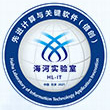Preconference Workshop 1:
Modeling, simulation and control of complex systems in the era of AI
 Speaker:Shaoyuan Li, Qingdao University of Science and Technology, Shanghai Jiao Tong University, China
Speaker:Shaoyuan Li, Qingdao University of Science and Technology, Shanghai Jiao Tong University, China
Title:Model Predictive Control for Operation Optimization of the Fluid Catalytic Cracking System with Complex Operational Conditions
Abstract: The petroleum refining industry is one of the basic industries, a pillar of the national economy, and an important force to promote the efficient growth of the country’s economy. Fluid catalytic cracking (FCC) is a key unit in many refineries and occupies a critical position because it is one of the most flexible processes in the petroleum refinery and can process all types of feedstock. A successful operation of the FCC unit determines whether or not the refiner can remain competitive. However, due to the high dependence on oil imports, the quality of the crude oil varies greatly, which leads to a variation in the feedstock of the FCC unit. Besides, the market demands are rapidly changing. All of these make it important to study the operation optimization of FCC units. Aiming at the problems of feedstock composition fluctuation, catalyst deactivate and product plan change, the report will discuss the operation optimization and predictive control method that can improve the economic benefits of the FCC unit under dynamic conditions.
Biography: Shaoyuan Li received his PhD degree in Automatic Control and Applications from Nankai University of China in 1997 and he was a Post Doctor in the Department of Automation in Shanghai Jiao Tong University from March 1998 to March 2000. He is Chair Professor at School of Electronic Information and Electrical Engineering, and the Chinese Dean of SJTU Paris Elite Institute of Technology, Shanghai Jiao Tong University. He is Vice president of Chinese Association of Automation, Deputy Director of Automation Teaching Steering Committee, the Ministry of Education, and Member of the State Council Discipline Evaluation Committee (Control Science and Engineering). His research areas include model-predictive control, adaptive control, intelligent control and industrial applications. He has published more than 200 papers in leading journals both at home and abroad. He is the PI of over 20 projects supported by the National Nature Science Foundation of China (NSFC), the High Technology Research and Development Program of China and Shanghai Science and Technology Commission. His main achievements won the First Prize of the 2006 Shanghai Natural Science Award (ranking the first), the Second Prize of the first Yang Jiache Science and Technology Award in 2010, the First Prize of the Natural Science Award of CAA in 2016 (ranking the first), the Second Prize of the 2017 National Natural Science Award (ranking the second), the Outstanding Prize of Shanghai Teaching Achievement Award in 2017 (ranking the first), and the First Prize of National Teaching Award by Ministry of Education in 2018 (ranking the first). In 2008, he was awarded with the National Outstanding Youth Fund by NSFC. Moreover, he was entitled Shanghai Elite Teacher and nominated for Baogang Outstanding Teacher Award. He was also enlisted National Bai-Qian-Wan Talent Plan.
 Speaker:Lin Zhang, Beihang University, China
Speaker:Lin Zhang, Beihang University, China
Title:Modeling and Simulation Based Systems Engineering (MSBSE) with X Language
Abstract: Model-based systems engineering (MBSE) changes the document-based collaboration of traditional systems engineering by adopting a model-centric approach that supports system requirements, design, analysis, verification, validation, and other activities. Despite its benefits, the current MBSE methodology and tools face a significant challenge in simulating and verifying physical-level models in real-time, necessitating data conversions from system-level models that hinder the implementation and promotion of MBSE. Modeling and simulation (M&S) technology plays an irreplaceable role in the development of complex engineering systems. To further enhance the value of MBSE and its ability to digitally evaluate and optimize entire systems, modeling and simulation-based systems engineering (MSBSE) extends MBSE by leveraging M&S technology in comprehensive applications. In this lecture, the main ideas and technologies of MSBSE will be introduced, including the X language, an integrated M&S language that supports MSBSE. X language incorporates SysML, Modelica, DEVS, agents, and machine learning, enabling the unified modeling of entire systems. Several application examples will also be presented to showcase the advantages of MSBSE with X language.
Biography: Lin Zhang, professor of Beihang University. He served as the President of the Society for Modeling and Simulation International (SCS), the president of Asian Simulation Federation (ASIASIM), the executive vice president of China Simulation Federation (CSF). He is currently a Fellow of SCS, ASIASIM and CSF, a chief scientist of the National 863 Program and National Key R&D Program of China. He serves as the Director of Engineering Research Center of Complex Product Advanced Manufacturing Systems, Ministry of Education of China, Editor-in-Chief and associate editors of 8 peer-reviewed international journals. He authored and coauthored more than 300 papers, 30 books and chapters, He received the National Award for Excellent Science and Technology Books, the Outstanding Individual Award of National High-Tech R&D Program, the National Excellent Scientific and Technological Workers Awards, SCS Outstanding Professional Contribution Award. His research interests include service-oriented modeling and simulation, cloud manufacturing and simulation, model engineering, model-based systems engineering, cyber-physical systems, M&S for manufacturing systems, etc.
 Speaker:Xiang Li, Tongji University, China
Speaker:Xiang Li, Tongji University, China
Title:Exploring global coordinating a multi-agent network with distributed predictions
Abstract: Coordinating a network of multi-agent systems has the potential to group intelligence in both academic interests and practical implementations. With the desire of embedding predictive mechanisms into unmanned vehicles, autonomous intelligent agents are promising to achieve global coordination with distributed predictions. In this talk, salute to my PhD advisor Prof. Zhuzhi Yuan of Nankai University, I will recall the extensive efforts in the past ten more years of my group with exploring the power of distributed model predictive control to the coordination of a multi-agent network, and discuss some future steps.
Biography: Prof. Xiang Li received his B.S. and Ph.D. degrees in automatic control, control theory and control engineering from Nankai University, China, in 1997 and 2002, respectively. Currently, he is a distinguished professor of Tongji University, and the founding director of the Institute of Complex Networks and Intelligent Systems at Shanghai Research Institute for Intelligent Autonomous Systems, Tongji University, Shanghai, China. He serves as the Associate Editor of Journal of Complex Networks, Research, and the IEEE Circuits and Systems Society Newsletter, and the Area Editor (since 2022) of the IEEE Transactions on Network Science and Engineering journal. His main research interests cover network science and intelligent systems in both control theory and applications. He received the IEEE Guillemin-Cauer Award from the IEEE Circuits and Systems Society in 2005, Shanghai Natural Science Award (1st class) in 2008, National Science Foundation for Distinguished Young Scholar of China in 2014, the National Natural Science Award of China (2nd class) in 2015, the Ten Thousand Talent Program of China in 2017, TCCT CHEN Han-Fu Award of Chinese Automation Association in 2019 among other awards and honors.
 Speaker:Zhen Wang, Northwestern Polytechnical University, China
Speaker:Zhen Wang, Northwestern Polytechnical University, China
Title:AI-powered Cyber Intelligence Confrontation
Abstract: The cyberspace has become the fifth domain, following the four traditional domains of land, sea, air, and space. The information-based cyberspace is facing security risks from the physical information domain that centers on the physical world, the network domain that focuses on data communication, and the cognitive domain that centers on humans. In recent years, with the maturation of AI technology, AI is penetrating into the physical domain and enabling cyberspace to become increasingly intelligent. Intelligent confrontation in cyberspace has developed into a comprehensive AI-driven system that integrates physical, network, and cognitive confrontation. The system primarily consists of three types of intelligent confrontation: (1) functional intelligent confrontation based on knowledge inference and machine learning, which seeks more efficient, faster, and more complex attack and defense strategies; (2) adversarial intelligent confrontation based on adversarial deep learning, which seeks more cunning, robust, and trustworthy attack and defense strategies; and (3) game-theoretic intelligent confrontation, which seeks more rational, long-term, and group-based attack and defense strategies. AI-driven cyber confrontation has become a competition for intellectual resources among nations, hackers, white-hats, blue teams, and red teams. It will undoubtedly profoundly affect the future competition among major powers and the world's security pattern.
Biography: Dr. Wang Zhen, a professor at Northwestern Polytechnical University and secretary of the School of Cybersecurity, also serves as the executive vice president of the National Institute of Confidentiality. He is an elected member of the National Science Fund of Distinguished Scholars, an elected member of Academia Europaea/The Academy of Europe (AE), European Academy of Sciences and Arts (EASA), IASCYS Academician and Global Young Academy (GYA), an invited FULL member of SIGMA Xi, a Fellow of AAIA, a Highly Cited Researcher ranked by Clarivate Analytics. He leads the defense innovation team and has published a series of remarkable achievements in the fields of game intelligence, intelligent unmanned systems, and cyberspace intelligence confrontation. His research has been published in prestigious journals such as Nature Communications, PNAS, Science Advances, Physical Review Letters, IEEE Transactions, IJCAI, AAAI, NeurIPs, ICML, ICLR, and WWW, with over 20,000 citations. He has also authored five industry technical standards and developed multiple swarm intelligence analysis systems, which have been successfully applied to various models and major national engineering tasks. Dr. Wang has been honored with numerous awards, including the XPLORER Prize, the May 4th Medal, the first MIT-TR35 Award in China (the only one in the western region), and the first prize of Natural Science Award of Ministry of Education. In addition, he serves as an editorial board member for more than ten journals, including IEEE Transactions, Elsevier, and Science China: information sciences.

















